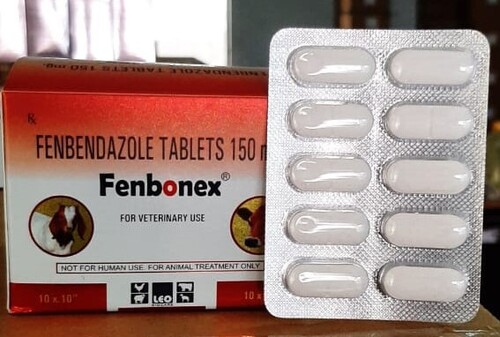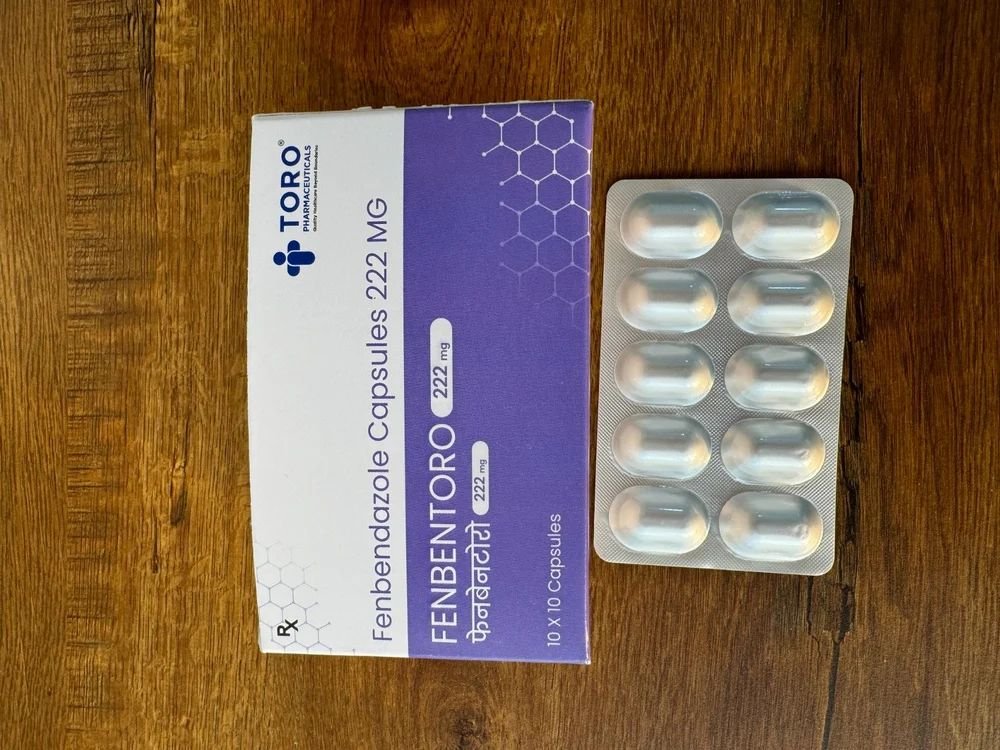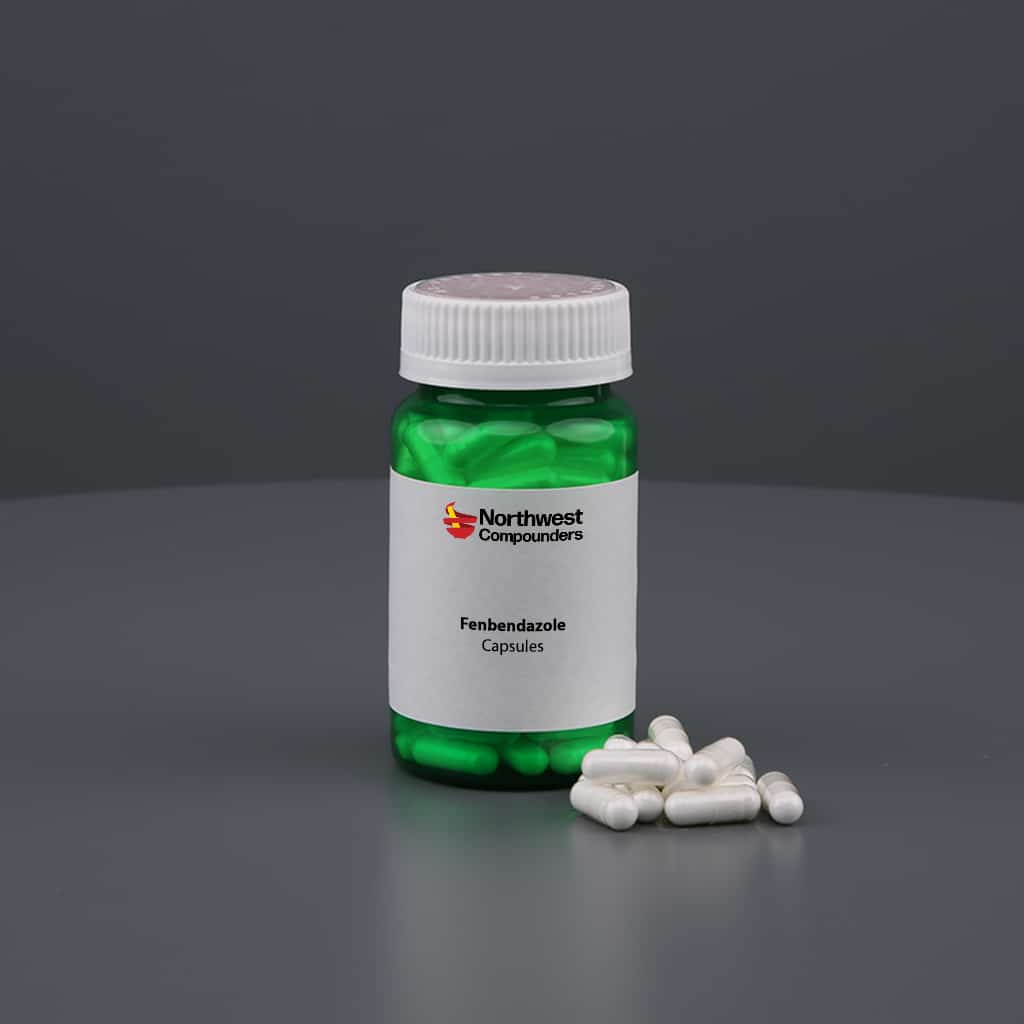Checking out the Mechanisms Behind Fenbendazole and Its Influence On Animal Health And Wellness
Fenbendazole is a widely made use of anthelmintic understood for its efficiency versus different bloodsuckers. Its primary mechanism involves the restraint of microtubule development, which disrupts critical processes in these pathogens. Beyond its antiparasitic homes, fenbendazole additionally shows up to improve immune feedbacks and has anti-inflammatory advantages. Understanding these multifaceted results might reveal brand-new applications for animal health and wellness. Inquiries stay regarding its full capacity and security profile.
The Pharmacokinetics of Fenbendazole
The pharmacokinetics of fenbendazole, a widely used anthelmintic in vet medicine, involves the study of its absorption, distribution, metabolic process, and discharging within animal systems. After management, fenbendazole is quickly soaked up from the gastrointestinal system, with peak plasma focus happening within hours. Its distribution is influenced by variables such as cells binding and lipid solubility, permitting it to penetrate different cells successfully. The drug undergoes considerable metabolism mostly in the liver, where it is converted right into energetic and non-active metabolites. These metabolites play a role in the medicine's overall effectiveness and security profile. Discharging happens mostly via feces, with a smaller sized proportion removed via pee. The half-life of fenbendazole varies among species, which impacts dosing regimens. Recognizing these pharmacokinetic residential or commercial properties is important for maximizing its healing usage and guaranteeing effective parasite control in veterinary practices.
Devices of Activity Versus Parasites
Fenbendazole exerts its antiparasitic effects mostly with the restraint of microtubule development in bloodsuckers. This disturbance influences their architectural integrity and cellular features, bring about damaged energy metabolic process. Therefore, the medicine successfully jeopardizes the survival and reproduction of various parasitic organisms.
Restraint of Microtubule Development
Restraint of microtubule development stands for a crucial device where specific anthelmintic agents, consisting of fenbendazole, apply their impacts on parasites. Fenbendazole binds to tubulin, a healthy protein that develops microtubules, interfering with the polymerization procedure needed for microtubule assembly. This disturbance hinders necessary mobile features, including mitosis, intracellular transportation, and structural stability. As microtubules play a critical function in maintaining the shape and feature of parasitic cells, their inhibition causes cell cycle arrest and eventual death of the bloodsucker. This device is particularly reliable against nematodes, as their reliance on microtubules for flexibility and nutrient absorption makes them prone to fenbendazole. The restraint of microtubule development is a crucial element of fenbendazole's restorative efficacy in vet medication.
Disruption of Power Metabolic Process
Interrupting power metabolic rate is another essential system through which fenbendazole targets parasitic microorganisms. This anthelmintic alters the power manufacturing pathways within bloodsuckers, primarily influencing their capability to produce adenosine triphosphate (ATP) By inhibiting sugar uptake and interfering with mitochondrial feature, fenbendazole limitations the power sources vital for the survival and recreation of these organisms. As an outcome, bloodsuckers end up being significantly vulnerable to ecological tensions and immune feedbacks. Moreover, the disturbance in energy metabolism not just influences the parasites straight yet additionally decreases their ability to assimilate nutrients, better hindering their development. On the whole, the interruption of basal metabolism stands for an essential facet of fenbendazole's efficacy against different parasitic infections, contributing considerably to enhanced animal health and wellness end results
Possible Negative Effects and Safety Profile
The prospective adverse effects and safety account of fenbendazole warrant cautious factor to consider, particularly in veterinary applications. While generally considered risk-free, some animals may experience damaging responses, consisting of gastrointestinal disturbances such as vomiting and looseness of the bowels. Additionally, neurological symptoms, although uncommon, have been reported in delicate people, highlighting the demand for surveillance during therapy.

Fenbendazole's security in various species, consisting of pet dogs and pet cats, has actually been recorded, however dose and duration of treatment should be meticulously taken care of to minimize risks. Expecting or lactating pets might additionally call for special focus, as the results on establishing fetuses or nursing children are not completely comprehended.
Routine vet consultations can aid mitigate possible adverse effects and assure the medicine is carried out appropriately. Consequently, while fenbendazole is an efficient anthelmintic representative, caution regarding its negative effects is vital for preserving pet wellness.

Fenbendazole's Impact on Immune Feature
Fenbendazole has actually been kept in mind for its possible to modulate immune system feedbacks in animals. Its anti-inflammatory residential properties may add to enhanced immune feature, supplying a double advantage in handling health and wellness (fenbendazole). Understanding these effects is important for assessing fenbendazole's function in veterinary medicine
Body Immune System Inflection

Anti-inflammatory Characteristics
Anti-inflammatory impacts stand for a considerable aspect of fenbendazole's influence on immune function. Research suggests that fenbendazole might reduce the manufacturing of pro-inflammatory cytokines, which are crucial in moderating inflammatory feedbacks. By modulating these cytokines, fenbendazole can potentially ease inflammation-related conditions in pets. This anti-inflammatory action not just aids in handling signs connected with various diseases yet additionally improves overall body immune system efficacy. In addition, its capacity to promote a well balanced immune response aids avoid excessive inflammatory damage, which can bring about persistent health and wellness problems. Fenbendazole's function in inflammation management emphasizes its importance in veterinary medication, offering a dual advantage of antiparasitic action and immune system assistance for pet health.
Applications Past Typical Parasitical Infections
While mostly recognized for its effectiveness against numerous parasitic infections, fenbendazole has garnered interest for potential applications yet traditional extent. Current studies recommend that fenbendazole might have valuable effects on mobile health and immune reaction, More about the author making it an appealing prospect for managing other wellness conditions in pets. For instance, its reported anti-inflammatory properties might offer relief for pets enduring from persistent inflammatory diseases. In addition, some study shows that fenbendazole could contribute in supporting the overall wellness of pets by improving nutrition absorption and gastrointestinal health and wellness. In addition, its potential as an adjunct treatment in cancer cells therapy has triggered rate of interest, as initial searchings for suggest it could inhibit tumor cell growth in specific contexts. These varied applications highlight fenbendazole's convenience, encouraging further exploration into its multifaceted advantages for animal health past its traditional use as a deworming representative.
Future Research Study Directions and Effects for Pet Health
The exploration of fenbendazole's possible applications has opened brand-new avenues for study focused on enhancing pet health and wellness. Future studies could focus on its performance versus a broader variety of virus, consisting of bacteria and infections, thereby increasing its role in veterinary medicine. The ramifications of fenbendazole's devices, such as its impact on immune modulation, warrant even more investigation to comprehend how it can strengthen total wellness in various varieties.
Furthermore, research might check out ideal does and formulas to make best use of efficiency while reducing potential negative effects. Exploring fenbendazole's collaborating impacts with various other drugs can result in much more effective treatment methods. Longitudinal studies examining lasting end results in animals treated with fenbendazole could supply useful insights into its safety and security and performance. Overall, the ongoing expedition of fenbendazole uses appealing capacity to improve pet health and wellness, necessitating a collective method among researchers, vets, and pharmaceutical designers to help with innovations in this field.
Regularly Asked Questions
Can Fenbendazole Be Made Use Of in Livestock for Bloodsucker Avoidance?
The concern of whether fenbendazole can be used in animals for parasite avoidance matters, as producers look for effective treatments (fenbendazole 444). Study indicates it may give advantages, yet correct guidelines and vet suggestions are essential for safe usage
What Is the Advised Dose of Fenbendazole for Different Animals?

Are There Any Recognized Medication Interactions With Fenbendazole?
Present expertise indicates that fenbendazole may connect with certain medicines, potentially impacting their effectiveness or metabolic rate. Veterinary experts recommend seeking advice from a veterinarian to analyze private animal situations and figure top article out any feasible interactions before management.
Just How Does Fenbendazole Compare to Various Other Antiparasitic Drugs?
Fenbendazole is typically contrasted to other antiparasitic drugs based upon efficacy, range of task, and safety and security accounts. It is favored for its efficiency against a large range of bloodsuckers while generally exhibiting minimal side results in animals.
Is Fenbendazole Effective Against Viral or Bacterial Infections in Pets?
The efficiency of fenbendazole browse this site against viral or microbial infections in animals continues to be unverified. Research mainly focuses on its antiparasitic homes, with restricted evidence supporting any kind of function in treating non-parasitic infections in veterinary medication.